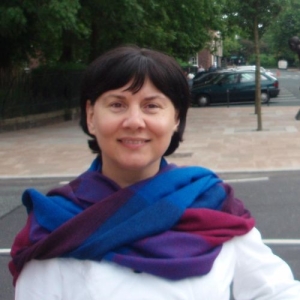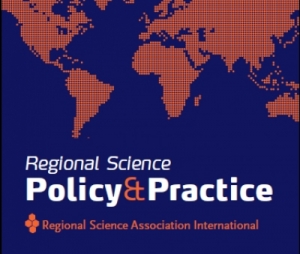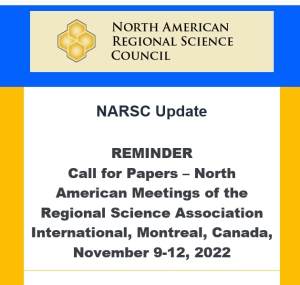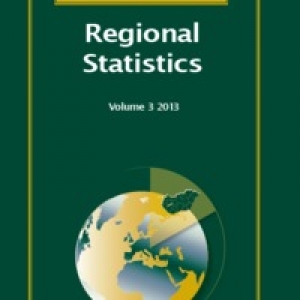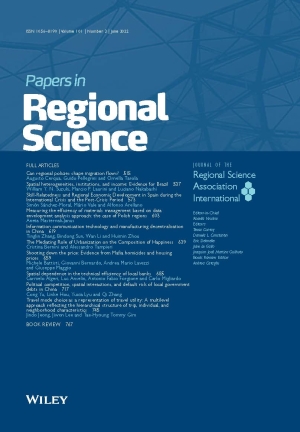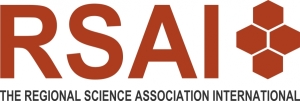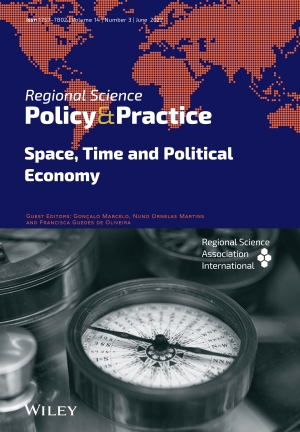Council
Elisabete Martins
News about Daniela Constantin
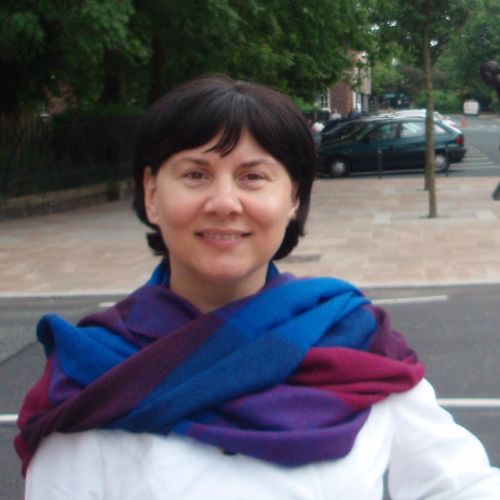 “Capital” - a celebrated Romanian magazine for economic and financial affairs - has included Prof. Daniela Constantin in the 2022 Top 100 Most Successful Women in Romania – Top 10 Most Successful Women in Education and Research Section. The other nine sections include Business, Management, Marketing, Public Administration, Mass-media, Civil Society, Medicine, Sports, and Entertainment. Nominations are exclusively and secretly made by the magazine editors; nominees are then contacted and informed about the outcome of the selection. 2022 is the first year in which an explicit section is dedicated to Education and Research.
“Capital” - a celebrated Romanian magazine for economic and financial affairs - has included Prof. Daniela Constantin in the 2022 Top 100 Most Successful Women in Romania – Top 10 Most Successful Women in Education and Research Section. The other nine sections include Business, Management, Marketing, Public Administration, Mass-media, Civil Society, Medicine, Sports, and Entertainment. Nominations are exclusively and secretly made by the magazine editors; nominees are then contacted and informed about the outcome of the selection. 2022 is the first year in which an explicit section is dedicated to Education and Research.
Prof. Constantin is Full Professor of Regional Economics at the Academy of Economic Studies of Bucharest. She acts as Associate Editor of Papers in Regional Science, and serves as Councillor-at-large on the RSAI Council. Congratulations, Daniela!
RSPP Call for Papers | Special Issue on The Impact of European Integration in Western Balkan Countries
Regional Science Policy & Practice (RSPP)
Call for papers for RSPP Special Issue on “The Impact of European Integration in Western Balkan Countries”
Guest Editor
Jolta Kacani - University of Tirana, Email: This email address is being protected from spambots. You need JavaScript enabled to view it.
Within the last twenty years most of the Western Balkan countries are diligently following the European Integration process. For the region this process is widely accepted as the main instrument for accomplishing sustainable growth, regional prosperity and a peaceful wellbeing of citizens. The European Integration agenda has been a long social, economic, political, financial, technological, judicial, and environmental commitment empowering great expectations of citizens in the Western Balkan countries. The European perspective of the Western Balkan countries has been confirmed on numerous occasions by the European institutions over the past twenty years, but in fact, the EU has experienced a gradual approach of its enlargement policy.
Economic and political integration into the EU is a challenging process for the Western Balkan countries, happening simultaneously with technological change, increased transaction with the EU market and blooming of agile enterprises. These new trends in economic development combined with the new and inclusive political agenda has created new bridges among the countries in the region and joint benefits deriving from the EU membership. This situation has contributed to some states to expand and increase their influence in the region.
The scientific journal Regional Science Policy and Practice (https://rsaiconnect.onlinelibrary.wiley.com/journal/17577802) that belongs to Regional Science Association International (www.regionalscience.org) and it is committed to promote the development of Regional Science across the globe specifically through the promotion of special issues on nurtured by workshops is introducing a Special Issue call on “The Impact of European Integration in Western Balkan Countries”
The special issue on Regional Science Policy and Practice intends to promote r the EU Integration Agenda, exploring how it is shaping current regional policy research across the Western Balkan countries. The special issue intends to challenge current and highlight new research perspectives to regional development brought by European Integration commitment to promote an interdisciplinary exchange of ideas, knowledge, research, information and recommendations between scholars, professionals, policy makers and doctoral students. The organizers warmly invite inputs from researchers, policymakers and practitioners working in all areas related to regional development with particular focus on European Integration perspectives that relate to the following workshop themes and areas.
Special Issue Themes
- Inclusive growth and regional development
- Regional growth policies and strategies towards EU integration agenda
- Socio-economic inclusion in the region
- The EU’s role in sustainable development of the region
- Growth opportunities for inclusion in the EU market
- EU agenda towards green growth and energy efficiency
- Integrated territorial investments for resilient regions
- Strategies regional initiatives for sustainable tourism and cultural heritage
- Creative industries and regional development
- Transportation networks and accessibility
- Quality of education in Western Balkan countries, reforms, and challenges
- Agriculture and regional development
- EU Regional Policies and institutions
- Reducing regional disparities and improving regional wellbeing
- Knowledge transfer and
- Good governance in EU institutional reforms
- Regional cooperation in the management of EU funds
- Institutional transformation towards EU integration
- EU policy making and citizen’s participation
- The role of government in developing economic and integration policies
- Governance challenges in EU negotiation process
- Regional innovation, competitiveness and entrepreneurship
- Smart specialization and regional value chains
- Multinational enterprises and foreign direct investment in the region
- Industrial strategies for creation of regional innovative clusters
- Technological change and diversification
- Social innovation and resilient regions
- Regional digital transformation risks and challenges
- Digital skills and regional sustainability
- Effects of Covid-19 pandemic on regional digitalization
- E-commerce, E-learning, E-business for regional development
- Adaptive and resilient enterprises for faster integration in EU markets
- Structural transformation of operations in innovative enterprises
- Regional finance, investment and capital markets
- Efficiency and performance of regional financial institutions
- Internal controls and financial reporting for integration in EU markets
- Regional financial instruments for small and medium enterprises
- Effective public finance management for the EU integration agenda
- Sustainable financial analysis and auditing
- Challenges of financial reporting after the pandemic
- Free movement of goods and capital
- Demographic change, migration, and mobility behavior
- Challenges and opportunities of brain gain
- Internal migration and regional change
- The new geography of regional population clusters
- Structural change and resilience in labor markets
- Urban reorganization new opportunities for peripheral regions
- Networks, interactions and inequalities in cities
Manuscript submission information:
All submissions must be original and may not be under review elsewhere. All manuscripts will be submitted via the Regional Science Policy & Practice online submission system (https://www.editorialmanager.com/rspp/). Authors should indicate in the cover letter that the paper is submitted for consideration for publication in this special issue “The Impact of European Integration in Western Balkan Countries”, otherwise, your submission will be handled as a regular manuscript.
- Submissions open until December 31, 2024.
NARSC 2022 Call for Papers, Registration, and more!
|
||||||||||||||||||||||||||||||||||||||||
|
The New Issue of Regional Statistics is already Available! (2022, VOL 12, No 3)
THE NEW ISSUE OF REGIONAL STATISTICS IS ALREADY AVAILABLE!
We are pleased to inform you that a new issue of the Regional Statistics has been released and now it’s avaiable online.
https://www.ksh.hu/terstat_eng_current_issue
REGIONAL STATISTICS, 2022, VOL 12, No 3.
STUDIES
Adiwan F. Aritenang: The impact of urban characteristics on the spread of Covid-19 in 2020: The case of Java Island cities, Indonesia
http://www.ksh.hu/statszemle_archive/regstat/2022/2022_03/rs120301.pdf
Rahma Fitriani – Darmanto Darmanto – Zerlita F. Pusdiktasari: A dynamic-time dependent spatial autocorrelation detection for East Java's Covid-19 regional percent of cases, March 2020–March 2021 (Indonesia)
http://www.ksh.hu/statszemle_archive/regstat/2022/2022_03/rs120302.pdf
Debjoy Thakur – Ishapathik Das: Statistical assessment of spatio-temporal impact of Covid-19 lockdown on air pollution using different modelling approaches in India, 2019–2020
http://www.ksh.hu/statszemle_archive/regstat/2022/2022_03/rs120303.pdf
Imade Yoga Prasada – Aura Dhamira – Agus Dwi Nugroho: Agricultural land availability and farmer's income in Java Island, Indonesia, 1990–2018
http://www.ksh.hu/statszemle_archive/regstat/2022/2022_03/rs120304.pdf
Muhamad Rifki Maulana – Harry Aginta: Testing for convergence clubs in real wage across Indonesian provinces from 2008 to 2020
http://www.ksh.hu/statszemle_archive/regstat/2022/2022_03/rs120305.pdf
Emőke Kiss – Dániel Balla: Analysing national climate change-related documents: Spatial and temporal dimensions worldwide
http://www.ksh.hu/statszemle_archive/regstat/2022/2022_03/rs120306.pdf
Tekla Szép – Géza Tóth – Michael Carnegie LaBelle: Farewell to the European Union’s east-west divide: Decoupling energy lifts the well-being of households, 2000–2018
http://www.ksh.hu/statszemle_archive/regstat/2022/2022_03/rs120307.pdf
Dimitrios Angelidis – Athanasios Koulakiotis: Return and volatility spillovers in twelve Eastern European countries, 2006–2015
http://www.ksh.hu/statszemle_archive/regstat/2022/2022_03/rs120308.pdf
Join us to our social networking sites:
Call interns OECD CFE EDS 2022 - application deadline July 2022
Dear Sir or Madam,
the OECD Centre for Entrepreneurship, SMEs, Regions and Cities is looking for highly qualified and motivated students with a strong quantitative background to do a research-oriented internship in its Economic Analysis unit.
Candidates should be nationals of a OECD member country and be enrolled in a full-time graduate degree programme (Master or PhD) for the entire duration of the internship in economics, quantitative geography, or related fields (PhD level is strongly preferred).
We encourage candidates willing to apply their analytical skills in a policy context and to better understand what supports SMEs, entrepreneurship, regional, urban, rural and local development to submit their application.
For more information please consult the internship call here (also attached). The application deadline is 10th of July 2022.
--
The Economic Analysis Unit of the OECD Centre for Entrepreneurship, SMEs, Regions and Cities
Associate Director - Government Finance Research Center (GFRC) (Job ID #167729)
The Government Finance Research Center (GFRC) at the University of Illinois Chicago is seeking to fill its Associate Director position. The candidate should have research experience with a focus on government finance and budgeting.
The GFRC webpage is here: https://gfrc.uic.edu/
The job posting is here: https://jobs.uic.edu/job-board/job-details?jobID=167729&job=associate-director-government-finance-research-center-gfrc&fbclid=IwAR1omatzOSt1zncDyyqso-Mg5Lv03fsPvW03K7go5-fFO553WiE5Ivk4nk0
Description: This position is responsible for designing, conducting and managing research in the Government Finance Research Center’s (GFRC) priority areas; initiating and supervising new scholarly & research projects; strategic planning and development of new research programs.
Duties:
- Lead GRFC research agenda
- Develop intellectual agenda for GFRC research program.
- Design, conduct, and coordinate research on GRFC initiatives “core priority areas,” etc.
- Coordinate Faculty Advisor Panel in the design of research activities.
- Analyze findings, write research reports, and present research findings to public audiences, policymakers, scholarly audiences and funders.
- Pursue external funding for GFRC research including developing relationships with funders, writing grants and coordinating applications with grants and contracts staff people.
- Develop & promote relationships with peer research organizations in mutually beneficial ways.
- Support all GFRC research agendas
- Meet with faculty to provide scholarly support for research.
- Coordinate dissemination of GFRC & faculty advisory panel research in ways that impact local, state, and national policy.
- Advancement
- Meet with external constituencies to promote and advance Center priorities.
- Develop & manage relationships with potential funders and donors.
- In consultation of the Director, create, implement, coordinate and support GFRC External Advisory Panel.
- Develop relationships with potential panel members including public officials, scholars, and funders.
- Plan and coordinate External Advisory Panel meetings
- Represent GFRC at campus and non-campus meetings
- Perform other related duties and participate in special projects as assigned.
To apply, please visit: https://jobs.uic.edu/job-board/?start=1&per=5000 and Job ID: 167729 and upload a cover letter, CV and the names and contact information for three references by June 23, 2022.
Qualifications:
A minimum of a Master’s degree required ABD (pre-doctoral) in Public Administration, Public Affairs, Urban Planning, Economics, Political Science with a focus on government finance and budgeting PhD preferred.
Relevant experience in research-based organizations required. Preferably in either university, foundation, or nonprofit or civic organization.
Experience in research on government finance and budgeting, or related field.
Strong writing and communication skills, ability to supervise staff, plan and manage budgets.
Preference for demonstrated communications skills, such as publications, demonstrated experience in staff management and budget preparation.
The latest issue of Papers in Regional Science are available! Volume 101, Issue 3, June 2022
|
Papers in Regional Science Pages: 513-768 June 2022 |
ISSUE INFORMATION
![]() Free Access
Free Access
Pages: 513-514 | First Published:12 June 2022
FULL ARTICLES
![]() Open Access
Open Access
Can regional policies shape migration flows?
Augusto Cerqua, Guido Pellegrini, Ornella Tarola
Pages: 515-536 | First Published:02 March 2022
Spatial heterogeneities, institutions, and income: Evidence for Brazil
William Y. N. Suzuki, Marcio P. Laurini, Luciano Nakabashi
Pages: 537-571 | First Published:01 March 2022
Simón Sánchez-Moral, Mário Vale, Alfonso Arellano
Pages: 573-602 | First Published:17 March 2022
Aneta Masternak-Janus
Pages: 603-618 | First Published:14 February 2022
Information communication technology and manufacturing decentralisation in China
Tinglin Zhang, Bindong Sun, Wan Li, Huimin Zhou
Pages: 619-637 | First Published:22 February 2022
![]() Open Access
Open Access
The Mediating Role of Urbanization on the Composition of Happiness
Cristina Bernini, Alessandro Tampieri
Pages: 639-657 | First Published:18 March 2022
![]() Open Access
Open Access
Shooting down the price: Evidence from Mafia homicides and housing prices
Michele Battisti, Giovanni Bernardo, Andrea Mario Lavezzi, Giuseppe Maggio
Pages: 659-683 | First Published:26 February 2022
![]() Open Access
Open Access
Spatial dependence in the technical efficiency of local banks
Carmelo Algeri, Luc Anselin, Antonio Fabio Forgione, Carlo Migliardo
Pages: 685-716 | First Published:17 March 2022
Political competition, spatial interactions, and default risk of local government debts in China
Cong Yu, Linke Hou, Yuxia Lyu, Qi Zhang
Pages: 717-743 | First Published:01 March 2022
Jindo Jeong, Jiwon Lee, Tae-Hyoung Tommy Gim
Pages: 745-765 | First Published:01 March 2022
BOOK REVIEW
Martijn J. Smit
Pages: 767-768 | First Published:18 March 2022
Assistant Professor / Postdoctoral Researcher in Science of Science at the University of Warsaw - 3 positions available
The University of Warsaw is recruiting three Assistant Professor or Postdoctoral positions in Science of Science (including: scientometrics, research policy, science policy, sociology of science, economics of science or science and technology studies). Details are available here: https://www.lbn.uw.edu.pl/job-opportunities
Closing date for applications: June 29, 2022 (Warsaw time).
2022 RSAI Fellows and RSAI Newsletter (May 2022)
Dear RSAI members,
I hope this email finds you all well.
With the summer season about to start in the Northern Emisphere, the RSAI and its numerous sections all over the world keep running their daily activities.
It also gives me great pleasure to write you to deliver great news. The following four colleagues have been appointed Fellows of the RSAI:
- Prof. Genevieve Giuliano ( University of Southern California)
- Prof. Budy Resosudarmo (Australian National University)
- Prof. André Torre (University Paris-Saclay)
- Prof. Frank Van Oort (Erasmus University Rotterdam)
The committee in charge of pre-selecting candidatures, made up by this year by Prof. Kyoshi Kobayashi (Chair), Prof. Janice Madden, and Prof. Alessandra Faggian, whom I'd like to thank, received several very good candidatures. The committee suggested to process five of them, and the four names above turned out to pass the threshold for being elected based on the votes by other Fellows. Congratulations to the new Fellows on their outstanding achievement! The RSAI will count on them for mentoring future regional scientists and supporting the growth of the discipline and the association.
Let me also take the chance to send you the latest issue of the RSAI Newsletter (download), skillfully edited by Martijn Smit (University of Utrecht) and Mina Akhavan (Politecnico di Milano). The Newsletter brings you the latest news about the Associations' activities, while also introducing Roberta Capello's experience as an RSAI Fellow, hosting a chapter in Peter Batey's history of European Regional Science congresses, showcasing an interview to Andreas Diemer, who won the 2021 RSAI Dissertation award, and much more content. I am confident you'll enjoy the read.
Lastly, let me remind you all of the discounts for RSAI members to publish their articles, if accepted, in Open Access format on Papers in Regional Science and Regional Science, Policy and Practice. For the former, Authors face an APC of 3,550 USD/ 2,350 GBP/ 2,950 EUR for every accepted article, but this abates to 1,500 USD/1,000 GBP/1,250 EUR for RSAI members. For RSPP, APCs are equal to 2,550 USD/ 1,700 GBP/ 2,150 EUR for non-members, and 1,500 USD/1,000 GBP/1,250 EUR for RSAI members. This is yet another advantage from being a member of our association.
I thank you all in advance for your attention, and I look forward to seeing many of you soon at one of the many future RSAI events.
Kind regards,
The latest issue of Regional Science Policy & Practice are available! Volume 14, Issue 3, June 2022
|
Regional Science Policy & Practice Pages: 485-693 June 2022 Issue Edited by: Gonçalo Marcelo, Nuno Ornelas Martins, Francisca Guedes de Oliveira |
ISSUE INFORMATION
![]() Free Access
Free Access
Pages: 485-486 | First Published:02 June 2022
INTRODUCTION
Space, time and political economy
Gonçalo Marcelo, Nuno Ornelas Martins, Francisca Guedes de Oliveira
Pages: 487-489 | First Published:02 June 2022
ORIGINAL ARTICLES
The spatial–temporal web of the Inhabited City
Maria Filomena Molder
Pages: 490-502 | First Published:15 December 2021
Space and innovation: A sociological view from below
José Madureira Pinto
Pages: 503-512 | First Published:13 September 2021
Unsatisfying ordinalism: The breach through which happiness (re)entered economics
Gabriel Leite Mota PhD
Pages: 513-528 | First Published:21 October 2021
Timescapes and the vernacular language of Cuba’s popular economies
Oskar Lubiński
Pages: 529-538 | First Published:26 October 2021
João Vasco Coelho
Pages: 539-559 | First Published:28 September 2021
Sustainable public procurement in Portugal: The case of two public school canteens
Sofia Bizarro, Maria de Fátima Ferreiro
Pages: 560-574 | First Published:23 December 2021
ORIGINAL ARTICLES
Regions’ economic fitness and sectoral labor productivity: Evidence from Turkey
Ibrahim Tuğrul Çınar, Ilhan Korkmaz, Tüzin Baycan
Pages: 575-598 | First Published:31 March 2022
Commuting to work in cities: Bus, car, or train?
Amitrajeet A. Batabyal, Hamid Beladi
Pages: 599-609 | First Published:03 March 2022
![]() Open Access
Open Access
Linking spatial economics and sequencing economics for the Osaka tourism agglomeration
Akifumi Kuchiki
Pages: 610-626 | First Published:16 September 2021
Celebrities and GreenSphere tourism
Sérgio Nunes, Philip Cooke, Fábio Tomaz
Pages: 627-643 | First Published:13 July 2021
![]() Open Access
Open Access
Gender differences in weight status and early school leaving in Italy
Adriana Barone, Cristian Barra
Pages: 644-666 | First Published:27 October 2021
Spatiotemporal analysis of regional inflation in an emerging country: The case of Indonesia
Harry Aginta
Pages: 667-688 | First Published:24 April 2022
BOOK REVIEWS
Amitrajeet A. Batabyal
Pages: 689-690 | First Published:08 April 2022
Michael S. Delgado
Pages: 691-693 | First Published:19 April 2022
About Us
The Regional Science Association International (RSAI), founded in 1954, is an international community of scholars interested in the regional impacts of national or global processes of economic and social change.

